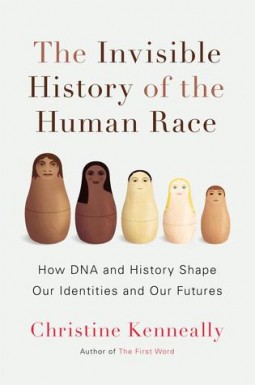This review contains affiliate links, which earn me a small commission when you click and purchase, at no extra cost to you. Thank you for supporting my small business and allowing me to continue providing you a reliable resource for clean book ratings.
People are fascinated by where they come from. How better to explain the explosion in popularity, particularly in the United States, of genealogy? Not only genealogical societies but various websites abound to help people find their parents’ parents and back and back. More recently, not only names and dates and stories reveal information about who we are, but DNA research is telling us where we came from too.
Christine Kenneally examines the latest research into our collective ancestries and what it means for us today. Not only does she look at the mapping of the genome, the technology for which is rapidly evolving and providing exponentially more information, but she tells readers about recent research into migration patterns, economics, and cultural patterns of trust and even storytelling.
The Invisible History of the Human Race is packed full of information, all of it interesting and food for thought. The only drawback is that it’s so much information I’ve had a difficult time figuring out how to explain it and how it all ties together. It’s all useful and pertinent but maybe not as perfectly organized as it could be.
Even so, the book is valuable. It addresses culture and the ways attitudes and behaviors are passed down through generations, such as racism and trust, and it addresses the ethical issues that are popping up as genome mapping becomes more and more accessible to “regular” individuals. How do we store and regulate this information in the aggregate—how do we protect privacy? How much of the information do we allow insurers to use? How do we better educate people to properly understand and handle the information they learn about themselves?
Kenneally concludes: “As researchers advance their understanding of culture and DNA, perhaps the most exciting prospect is a larger synthesized body of knowledge that explains the way that history affects DNA and the way that DNA affects history, with both together acting on some version of us, whether our private self, our family self, or our admixed self. … Now that we can see so much more clearly what has been passed down to us, what will we choose to hold back, what will we send further down the line, and how will we pass that information on?”
Rated: Moderate, for two uses of strong language in quotations.
Click here to purchase your copy of The Invisible History of the Human Race on Amazon.




